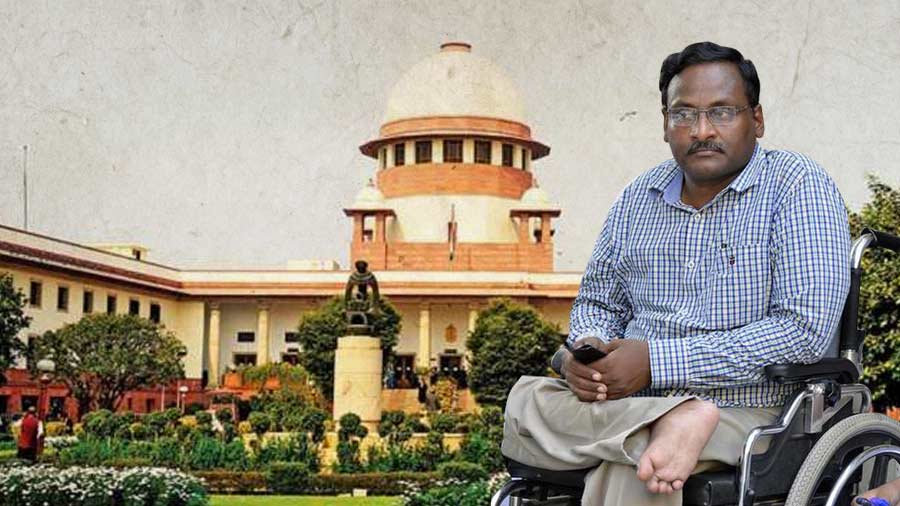The Supreme Court on Wednesday set aside the discharge order passed by Bombay High Court on October 14 last year in favour of former Delhi University professor G.N. Saibaba, a paraplegic, on the ground of “lack of valid sanction” in a Maoist links case, and asked it to consider afresh the matter on merit.
The bench of Justices M.R. Shah and C.T. Ravi Kumar also requested the chief justice of Bombay High Court not to place the matter before the same bench that had discharged him.
The apex court said the appeal proceedings against Saibaba should be completed within four months.
Though the setting aside of the high court order comes as a setback for Saibaba, he will have consolation on some other grounds. Saibaba now has the option of gettinghis appeal heard in four months, which otherwise would have taken at least two-three years.
Moreover, in case of an adverse order by the high court, Saibaba can always approach the Supreme Court. He would have lost that option if the Supreme Court itself had gone ahead with the appeal against the high court.
Wednesday’s order was passed by the apex court on a specific plea by senior advocate and former Kerala High Court judge R. Basant who on Monday urged the top court to remit the matter back to the high court for a fresh hearing.
On October 15 last year, the Supreme Court had held a special sitting on Saturday and suspended the high court’s order after the Maharashtra government rushed in to prevent the imminent release of Saibaba.
The then bench of Justices M.R. Shah and Bela M. Trivedi had questioned the rationale behind the high court’s order to discharge Saibaba on the ground of “lack of valid sanction”, particularlywhen the accused himself had not raised the plea during thetrial court proceedings,which had eventually convicted him.
The two-judge division bench of the high court had acquitted Saibaba on the ground that the sanction for his prosecution under Section 45 of the Unlawful Activities Prevention Act (UAPA) 1967 was “bad in law and invalid”, and it had rendered the trial court judgment against the accused “null and void”.
It referred to Section 45 of the UAPA under which prior sanction of the Centre or state was required before the court took cognisance of the offence.
The apex court bench of Justices Shah and Trivedi prima facie held that the charges against Saibaba and the others were “very serious”, and the convictions could therefore not be set aside on a mere technicality.











